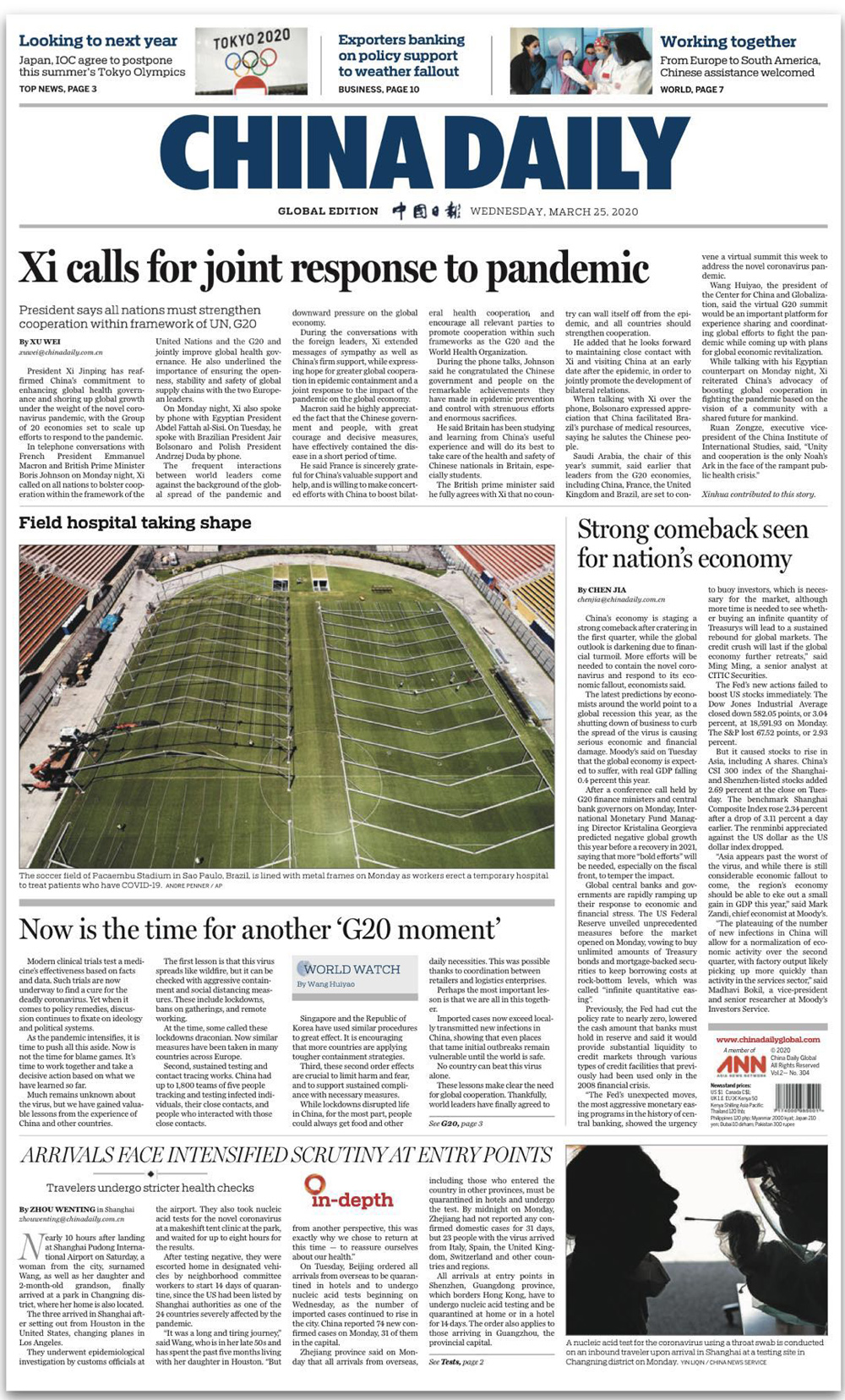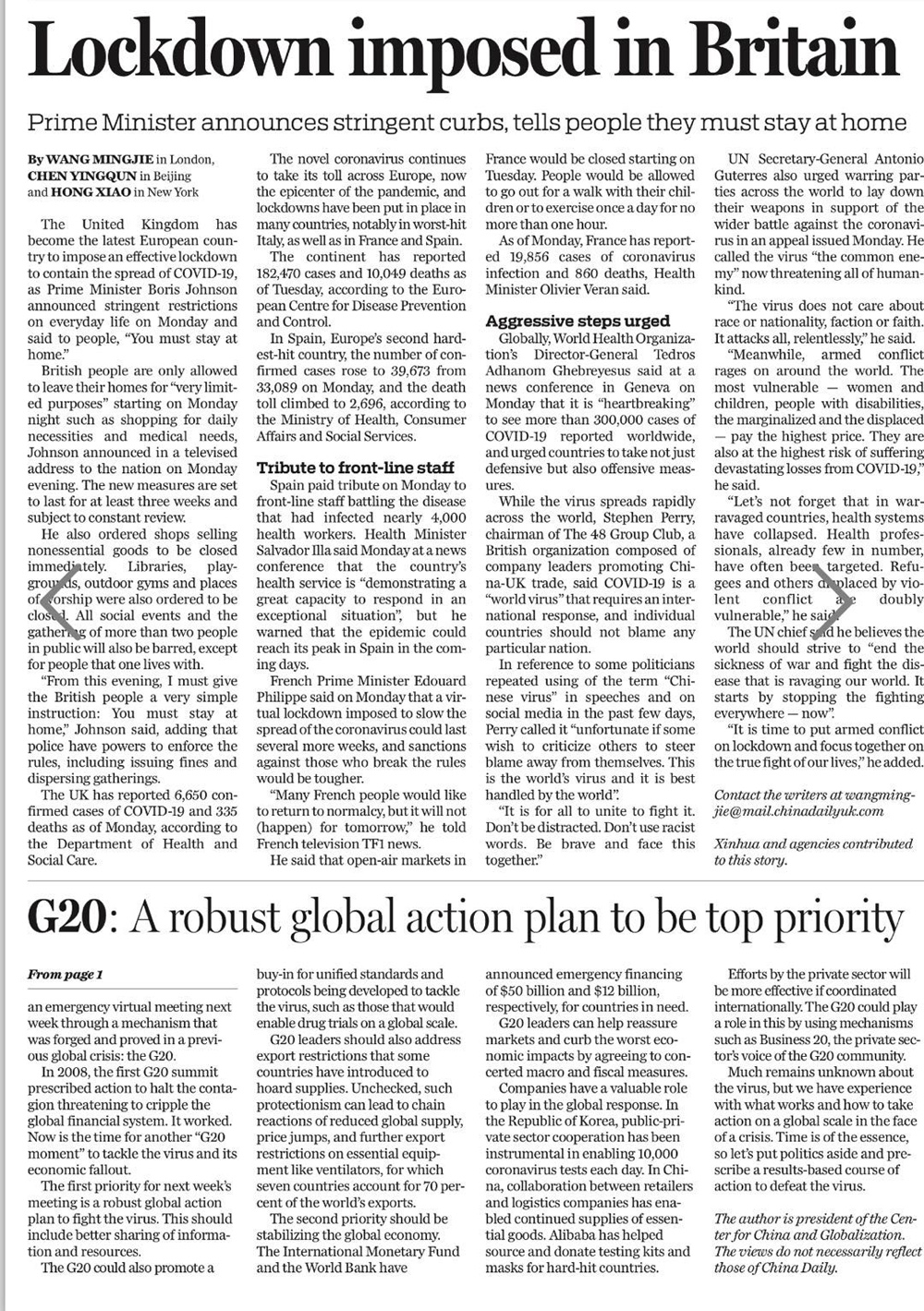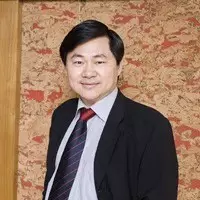Wang Huiyao: Now is the time for another ‘G20 moment’
March 25 , 2020

By Wang Huiyao |
President of the Center for China and Globalization(CCG)
Modern clinical trials test a medicine’s effectiveness based on facts and data. Such trials are now underway to find a cure for the deadly coronavirus. Yet when it comes to policy remedies, discussion continues to fixate on ideology and political systems.
As the pandemic intensifies, it is time to push all this aside. Now is not the time for blame games. It’s time to work together and take a decisive action based on what we have learned so far.
Much remains unknown about the virus, but we have gained valuable lessons from the experience of China and other countries.
The first lesson is that this virus spreads like wildfire, but it can be checked with aggressive containment and social distancing measures. These include lockdowns, bans on gatherings, and remote working.
At the time, some called these lockdowns draconian. Now similar measures have been taken in many countries across Europe.
Second, sustained testing and contact tracing works. China had up to 1,800 teams of five people tracking and testing infected individuals, their close contacts, and people who interacted with those close contacts.
Singapore and the Republic of Korea have used similar procedures to great effect. It is encouraging that more countries are applying tougher containment strategies.
Third, these second order effects are crucial to limit harm and fear, and to support sustained compliance with necessary measures.
While lockdowns disrupted life in China, for the most part, people could always get food and other daily necessities. This was possible thanks to coordination between retailers and logistics enterprises.
Perhaps the most important lesson is that we are all in this together.
Imported cases now exceed locally transmitted new infections in China, showing that even places that tame initial outbreaks remain vulnerable until the world is safe.
No country can beat this virus alone.
These lessons make clear the need for global cooperation. Thankfully, world leaders have finally agreed to an emergency virtual meeting next week through a mechanism that was forged and proved in a previous global crisis: the G20.
In 2008, the first G20 summit prescribed action to halt the contagion threatening to cripple the global financial system. It worked. Now is the time for another “G20 moment” to tackle the virus and its economic fallout.
The first priority for next week’s meeting is a robust global action plan to fight the virus. This should include better sharing of information and resources.
The G20 could also promote a buy-in for unified standards and protocols being developed to tackle the virus, such as those that would enable drug trials on a global scale.
G20 leaders should also address export restrictions that some countries have introduced to hoard supplies. Unchecked, such protectionism can lead to chain reactions of reduced global supply, price jumps, and further export restrictions on essential equipment like ventilators, for which seven countries account for 70 percent of the world’s exports.
The second priority should be stabilizing the global economy. The International Monetary Fund and the World Bank have announced emergency financing of $50 billion and $12 billion, respectively, for countries in need.
G20 leaders can help reassure markets and curb the worst economic impacts by agreeing to concerted macro and fiscal measures.
Companies have a valuable role to play in the global response. In the Republic of Korea, public-private sector cooperation has been instrumental in enabling 10,000 coronavirus tests each day. In China, collaboration between retailers and logistics companies has enabled continued supplies of essential goods. Alibaba has helped source and donate testing kits and masks for hard-hit countries.
Efforts by the private sector will be more effective if coordinated internationally. The G20 could play a role in this by using mechanisms such as Business 20, the private sector’s voice of the G20 community.
Much remains unknown about the virus, but we have experience with what works and how to take action on a global scale in the face of a crisis. Time is of the essence, so let’s put politics aside and prescribe a results-based course of action to defeat the virus.

Dr. Wang Huiyao is president of the Center for China and Globalization(CCG), the leading non-government think tank in China, with over 100 researchers and members of staff.
Topical News See more






